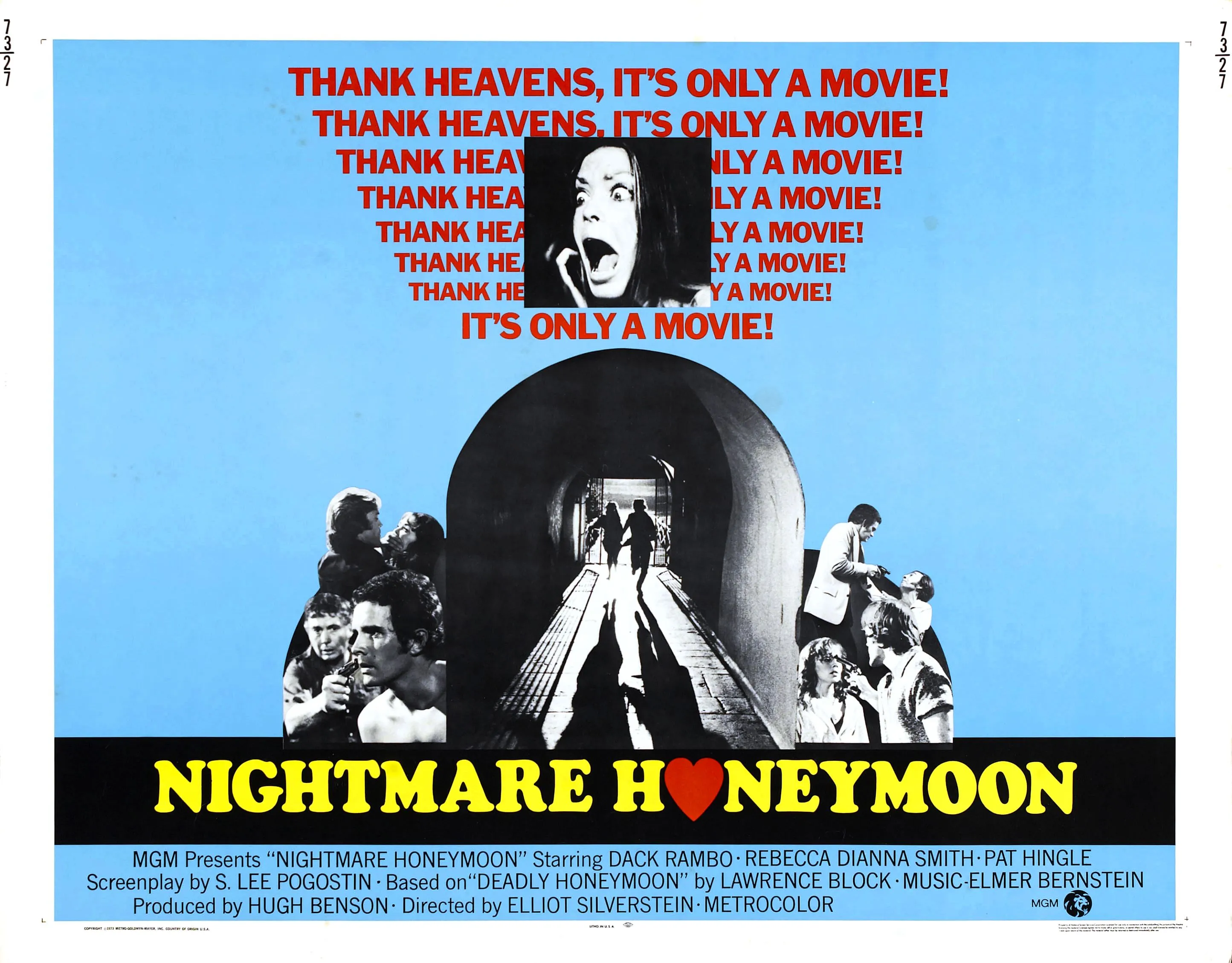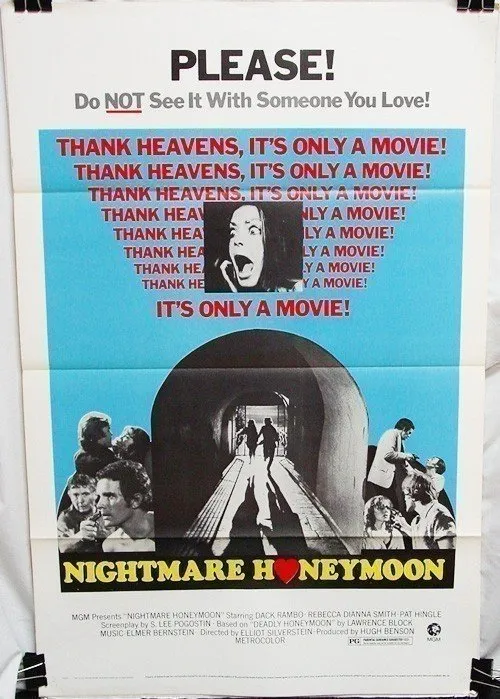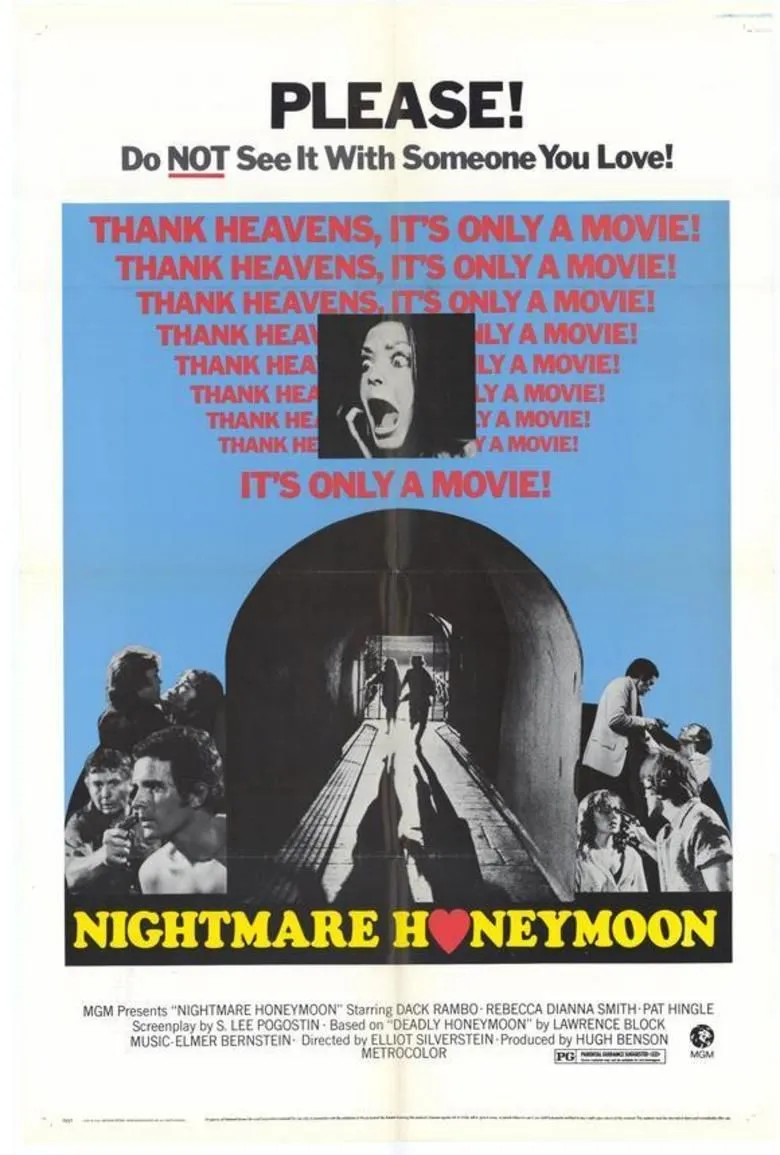What is a Honeymoon Nightmare?
A honeymoon is supposed to be a blissful beginning to a lifelong partnership, a romantic escape to celebrate love and create lasting memories. Unfortunately, for some couples, this dream turns into a nightmare. A honeymoon nightmare can manifest in various forms, from logistical disasters and financial woes to emotional turmoil and relationship strain. These experiences can range from minor inconveniences to significant setbacks, leaving couples feeling disappointed, stressed, and even resentful. Recognizing the potential pitfalls and understanding the shocking truths behind these unfortunate experiences is crucial for planning a successful and enjoyable honeymoon. It involves careful planning, open communication, and realistic expectations to navigate the challenges that may arise.
Unrealistic Expectations
One of the most common causes of a honeymoon nightmare is unrealistic expectations. Movies and social media often portray honeymoons as flawless, problem-free experiences. This can lead couples to believe that any imperfection, no matter how small, is a sign of failure. Couples might anticipate constant romance, perfect weather, and seamless travel, setting themselves up for disappointment. In reality, travel can be unpredictable, and relationships require effort. Problems such as minor arguments, travel delays, or unexpected expenses are normal and do not necessarily indicate a troubled relationship or a failed honeymoon. Managing expectations by accepting the possibility of minor setbacks and focusing on the positive aspects of the trip is crucial. Couples should talk openly about their hopes and be prepared to compromise and adjust their plans if necessary. The ability to adapt and maintain a sense of humor in the face of challenges is essential for turning potential nightmares into cherished memories.
Planning Overload

Intense planning overload can transform the honeymoon preparation process into a stressful ordeal, setting a negative tone before the trip even begins. The sheer volume of tasks, from booking flights and accommodations to arranging activities and managing budgets, can overwhelm couples. Spending too much time on the minutiae of planning can create a sense of anxiety and take away from the excitement of the upcoming trip. To avoid planning overload, couples should start early and break down tasks into manageable steps. Delegating responsibilities, such as using a travel agent or enlisting help from family and friends, can significantly ease the burden. It’s also essential to prioritize what is important, focusing on key elements and being flexible about the rest. Leaving room for spontaneity and embracing the unexpected can create a more relaxed and enjoyable experience, making the honeymoon feel like a true escape.
Poor Communication
Poor communication is a significant factor contributing to honeymoon nightmares. Before the trip, couples may fail to openly discuss their expectations, preferences, and financial constraints. This can lead to misunderstandings and disagreements during the trip, such as differences in desired activities or spending habits. During the honeymoon, communication can break down due to stress, fatigue, or the pressure to have a perfect experience. Couples may avoid discussing problems or expressing their needs, leading to resentment and emotional distance. To avoid these issues, couples should have honest and frequent conversations before the honeymoon, addressing topics such as budgets, travel styles, and activity preferences. During the trip, they should prioritize active listening, empathy, and constructive feedback. Taking time to communicate openly and resolve conflicts can strengthen the bond and transform potential problems into opportunities for growth.
Financial Stress
Financial stress can cast a dark shadow over a honeymoon, turning what should be a joyous occasion into a source of worry. The costs associated with honeymoons, including flights, accommodations, activities, and meals, can quickly add up. If couples haven’t adequately planned and budgeted for these expenses, they may find themselves overspending or facing unexpected costs. Financial stress can also arise from differing spending habits or disagreements about how to allocate resources. This can lead to arguments and resentment, impacting the overall enjoyment of the trip. To mitigate financial stress, couples should create a detailed budget well in advance, outlining all anticipated expenses. They should also openly discuss their financial goals and set spending limits. Being mindful of costs, researching deals, and prioritizing essential experiences over extravagant ones can help couples stay within their budget and enjoy their honeymoon without financial worries.
Hidden Costs

Hidden costs can be an unwelcome surprise, contributing to financial stress and potentially ruining a honeymoon. These unexpected expenses can include resort fees, taxes, gratuities, airport transfers, and the cost of activities not included in the initial package. Currency exchange rates and fluctuating prices can also lead to unforeseen costs. Lack of awareness about these hidden expenses can quickly deplete the honeymoon budget, forcing couples to cut back on planned activities or, worse, go into debt. To avoid this, couples should research all potential expenses thoroughly. They should carefully review the fine print when booking accommodations and flights, paying close attention to any additional fees or charges. Budgeting for incidentals, such as souvenirs, snacks, and drinks, is also essential. Considering all the potential costs upfront allows couples to plan accordingly, ensuring they can enjoy their honeymoon without unexpected financial burdens.
Overspending
Overspending on a honeymoon can lead to significant financial stress and detract from the experience. It’s easy to get carried away when on vacation, splurging on luxury accommodations, expensive meals, or extravagant activities. However, exceeding the budget can result in debt, arguments, and post-trip financial worries. External pressures, like comparing experiences on social media, can also tempt couples to spend more than they can afford. To avoid overspending, couples should create a realistic budget and stick to it. They should prioritize experiences that align with their values and interests, rather than focusing on superficial displays of wealth. Being mindful of costs, comparing prices, and looking for deals can help couples make informed spending decisions. Having a clear understanding of their financial limits and making a conscious effort to stay within them will help them enjoy their honeymoon without worrying about their bank balance.
Travel Issues
Travel issues can transform a honeymoon into a frustrating experience, disrupting the carefully laid plans and creating unnecessary stress. Unexpected problems such as lost luggage, flight delays, or transportation difficulties can test a couple’s patience and put a damper on their romantic getaway. Even minor inconveniences can become major annoyances when you’re trying to relax and enjoy quality time together. Being prepared for potential travel issues is crucial. It involves having the right documentation, packing essential items in carry-on luggage, and purchasing travel insurance to cover unforeseen events. Having a backup plan and maintaining flexibility in the face of challenges is essential for navigating these inevitable hiccups. Remaining calm, communicating effectively, and focusing on problem-solving can help couples overcome travel issues and salvage their honeymoon experience.
Lost Luggage

Lost luggage is a common travel woe that can quickly turn a honeymoon into a stressful ordeal. The loss of essential items, such as clothing, toiletries, and important documents, can cause significant inconvenience and disruption. The emotional impact of losing personal belongings can add to the stress, especially when trying to enjoy a romantic getaway. To minimize the risk of lost luggage, couples should pack essential items in their carry-on bags, including medications, important documents, and a change of clothes. They should also label their checked luggage clearly, with their names, contact information, and destination address. Taking pictures of luggage contents before departure can help with insurance claims. If luggage is lost, couples should report it to the airline immediately and keep copies of all documentation. Purchasing travel insurance that covers lost or delayed luggage is also recommended, providing financial protection and peace of mind.
Flight Delays
Flight delays can be a major source of frustration, causing couples to miss connecting flights, disrupt planned activities, and eat into their precious honeymoon time. Unexpected delays can be caused by various factors, including bad weather, mechanical issues, and air traffic congestion. These problems can lead to stress, anxiety, and disappointment, especially when couples have made detailed itineraries. To mitigate the impact of flight delays, couples should plan for potential disruptions by building buffer time into their schedules. They should monitor flight status updates regularly and be prepared to adjust their plans if needed. Having access to essential items, such as snacks, entertainment, and communication devices, can help pass the time. If a flight is delayed or canceled, couples should immediately contact the airline to rebook their flights and explore compensation options. Maintaining a positive attitude and focusing on problem-solving can help couples navigate flight delays and minimize their impact on their honeymoon.
Relationship Strain
Relationship strain can undermine the romantic atmosphere of a honeymoon, creating emotional distance and conflict. The pressures of travel, financial worries, and unmet expectations can exacerbate existing tensions or create new ones. Arguments, misunderstandings, and communication breakdowns can erode the joy and intimacy of the trip. Identifying and addressing potential sources of relationship strain is crucial for a successful honeymoon. This requires open communication, conflict resolution skills, and a willingness to compromise. Couples should prioritize spending quality time together, engaging in activities they both enjoy, and celebrating their connection. Seeking professional help, such as couples therapy, may be beneficial for couples struggling with significant relationship issues.
Clashing Personalities

Clashing personalities can create friction during a honeymoon, leading to misunderstandings and conflict. Differences in travel styles, preferences for activities, or approaches to problem-solving can cause tension. What one partner finds enjoyable, the other may find tedious or stressful. This can lead to arguments, disappointment, and a sense of disconnect. To navigate these potential issues, couples should openly discuss their expectations and preferences before the trip. They should be prepared to compromise and find common ground. Planning activities that cater to both partners’ interests, allowing for individual pursuits, and respecting each other’s needs can help prevent clashing personalities from ruining the honeymoon. Practicing patience, empathy, and effective communication can also help couples manage disagreements and maintain a positive atmosphere.
Unmet Expectations
Unmet expectations can contribute to disappointment and conflict during a honeymoon. If couples have different visions for the trip or have not openly communicated their desires, one or both partners may feel dissatisfied. Unrealistic expectations about romance, activities, or the overall experience can also lead to disappointment. To manage expectations, couples should have open and honest conversations before the honeymoon. They should discuss their hopes, desires, and any concerns they might have. Being flexible and willing to adjust plans is essential. Focusing on shared experiences, celebrating each other’s company, and appreciating the positive aspects of the trip can help couples overcome unmet expectations and create a memorable honeymoon.
